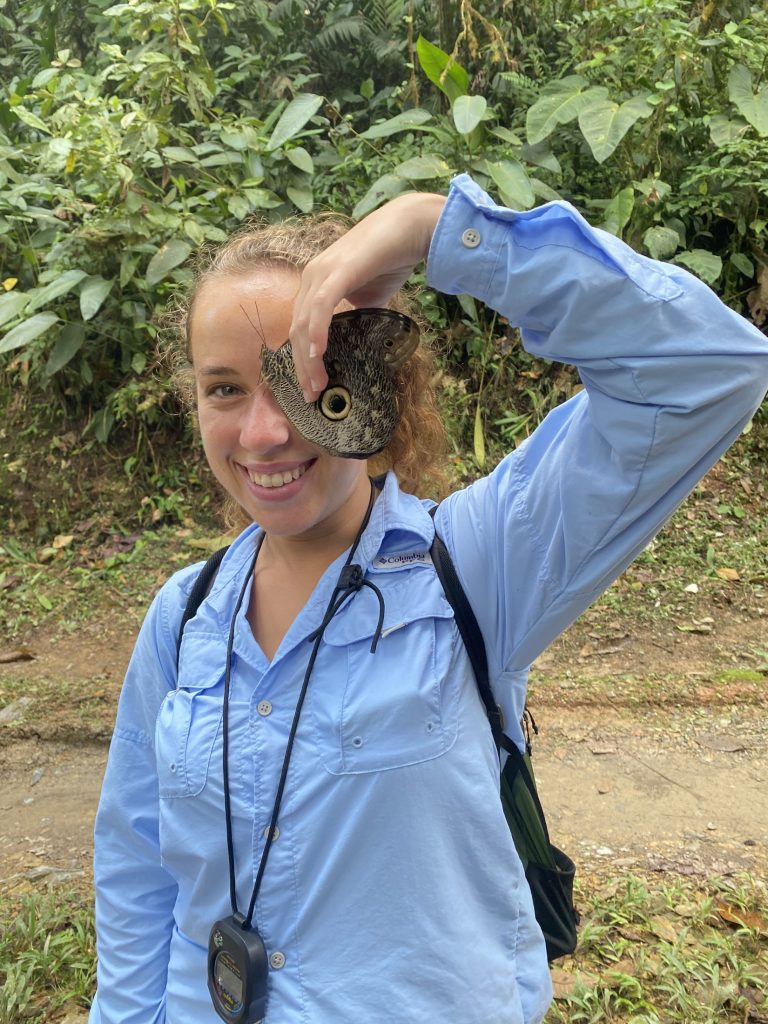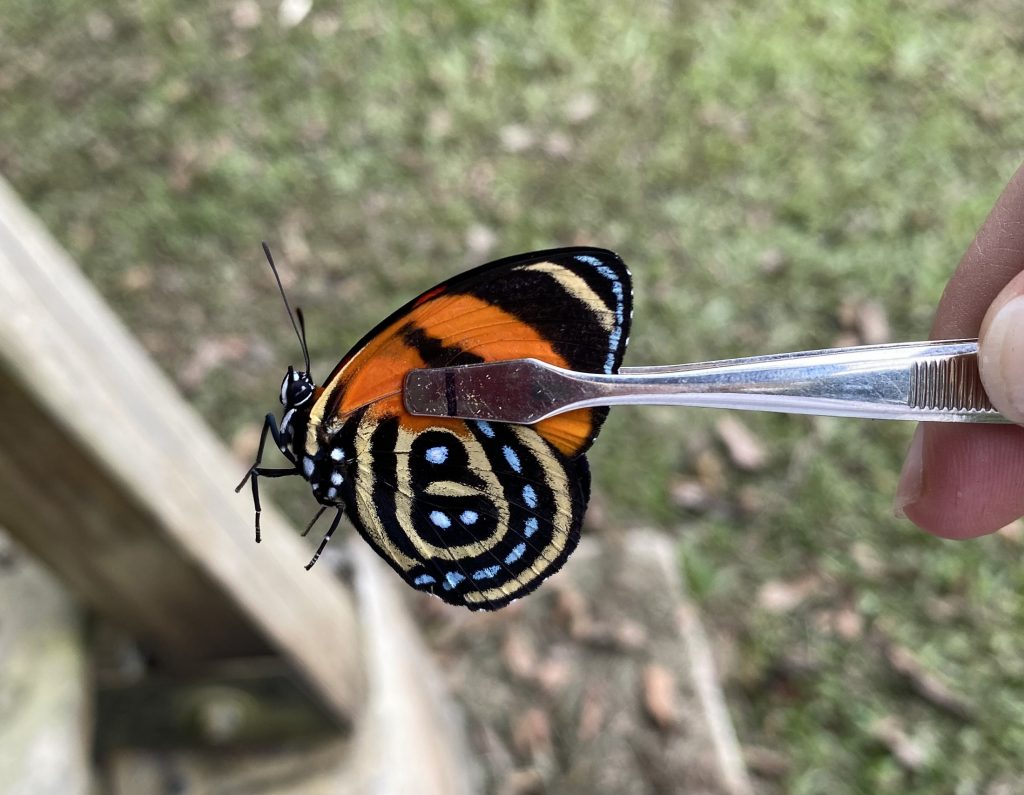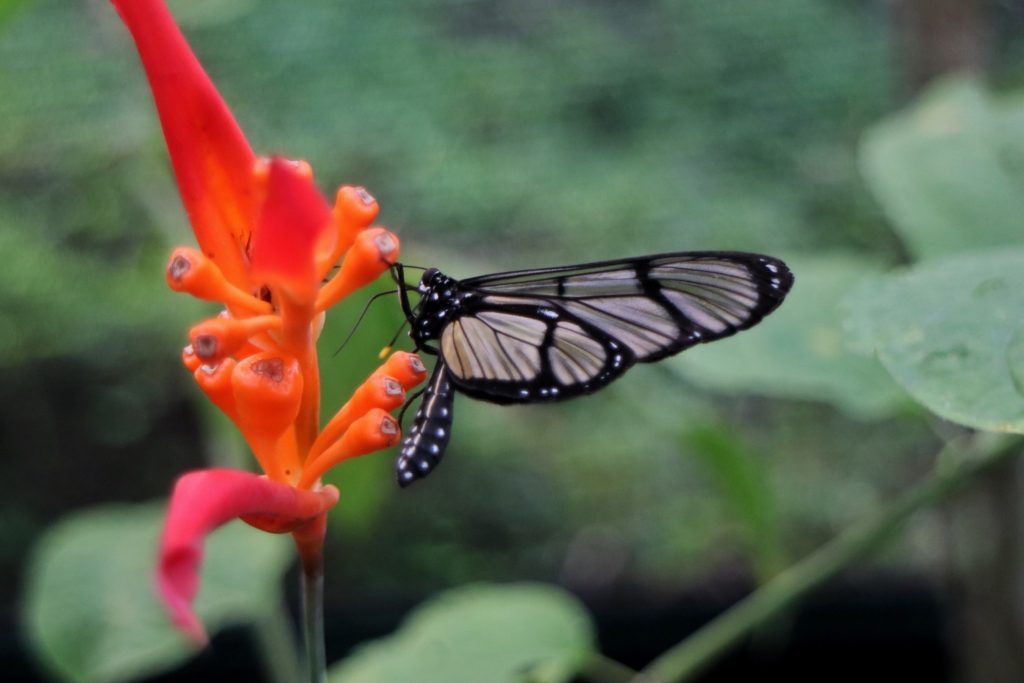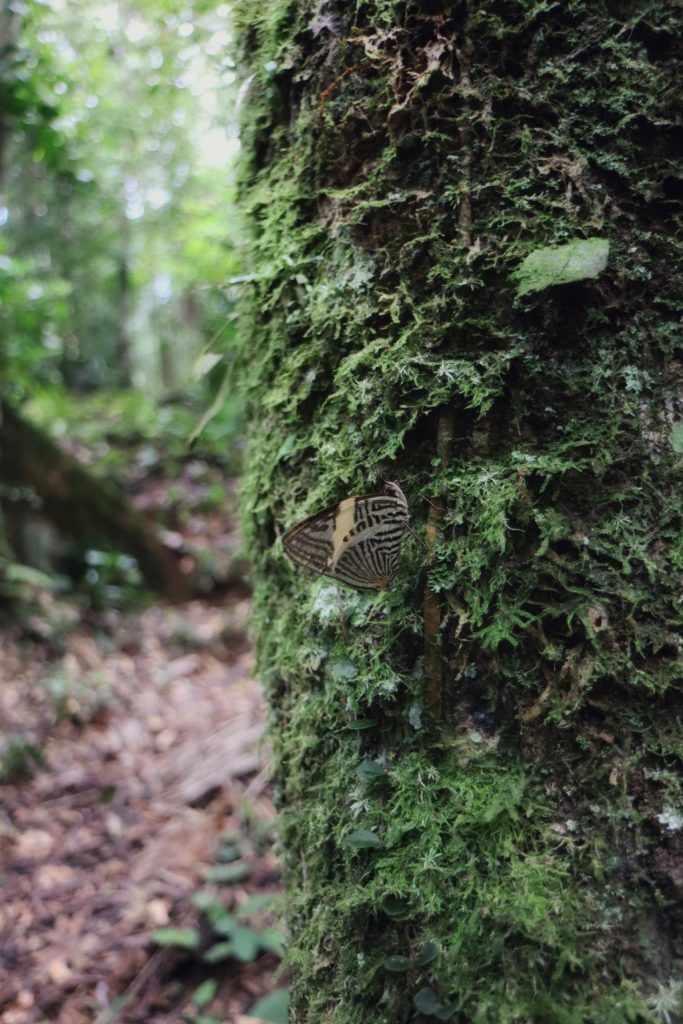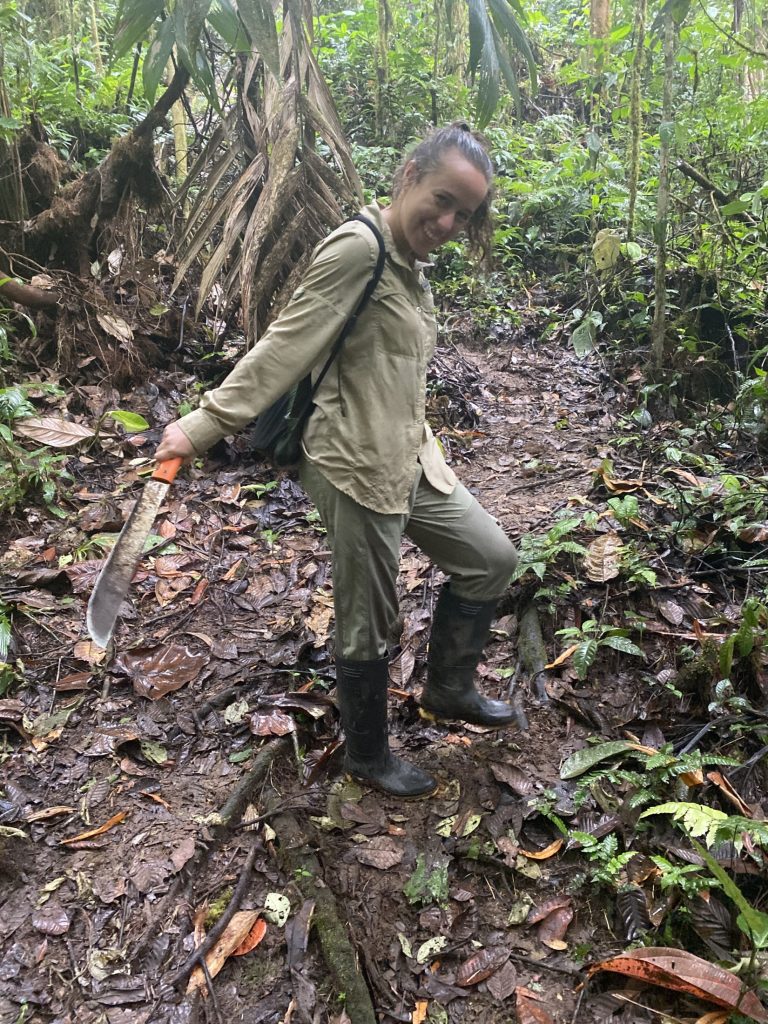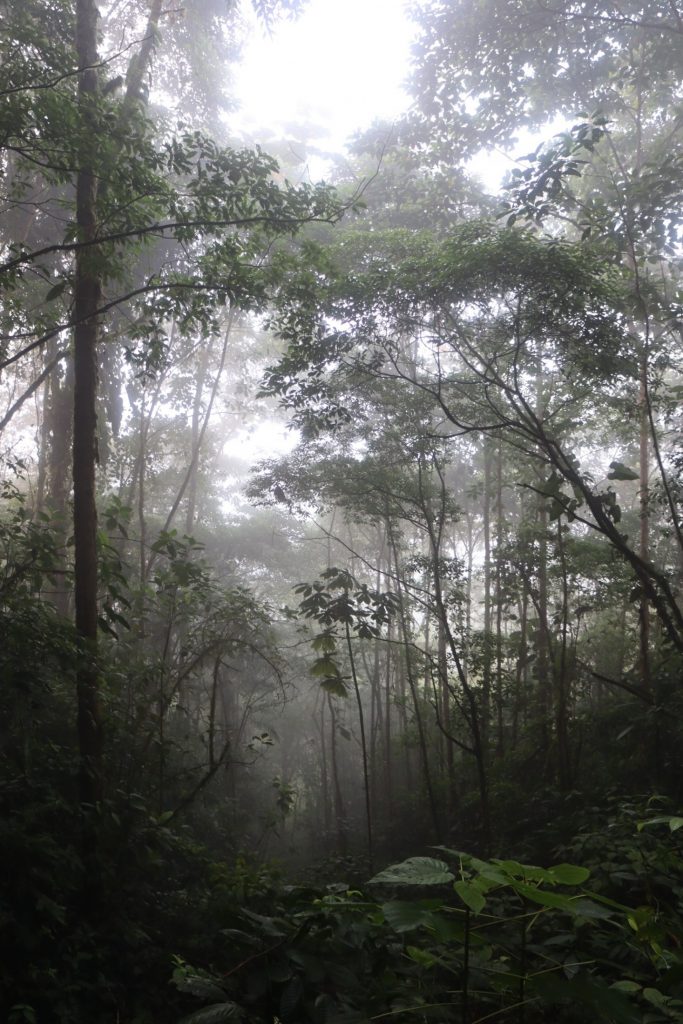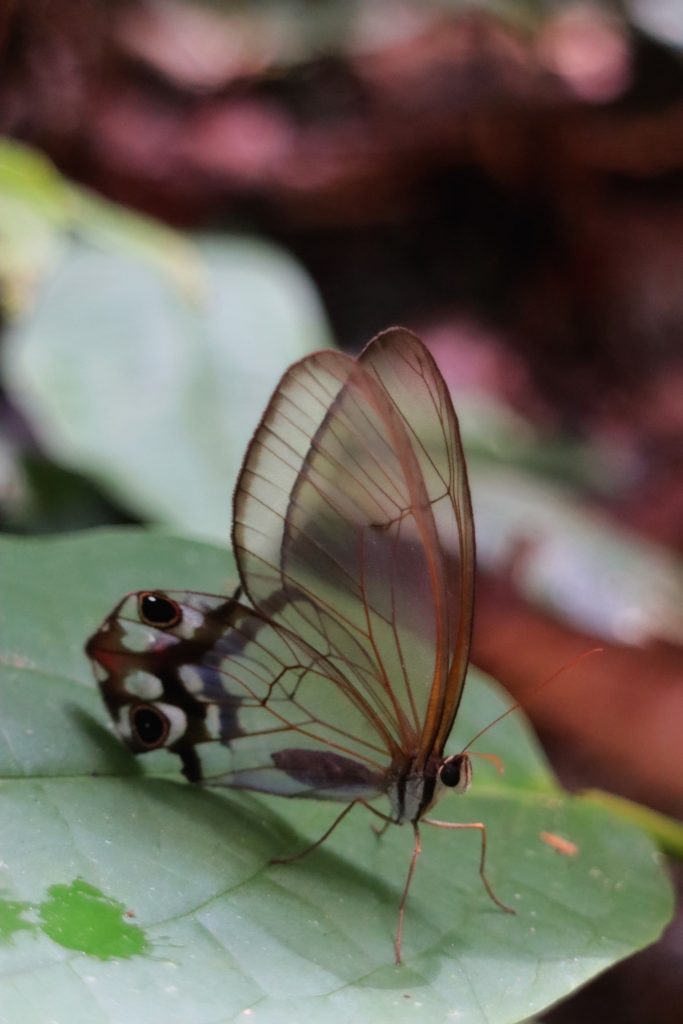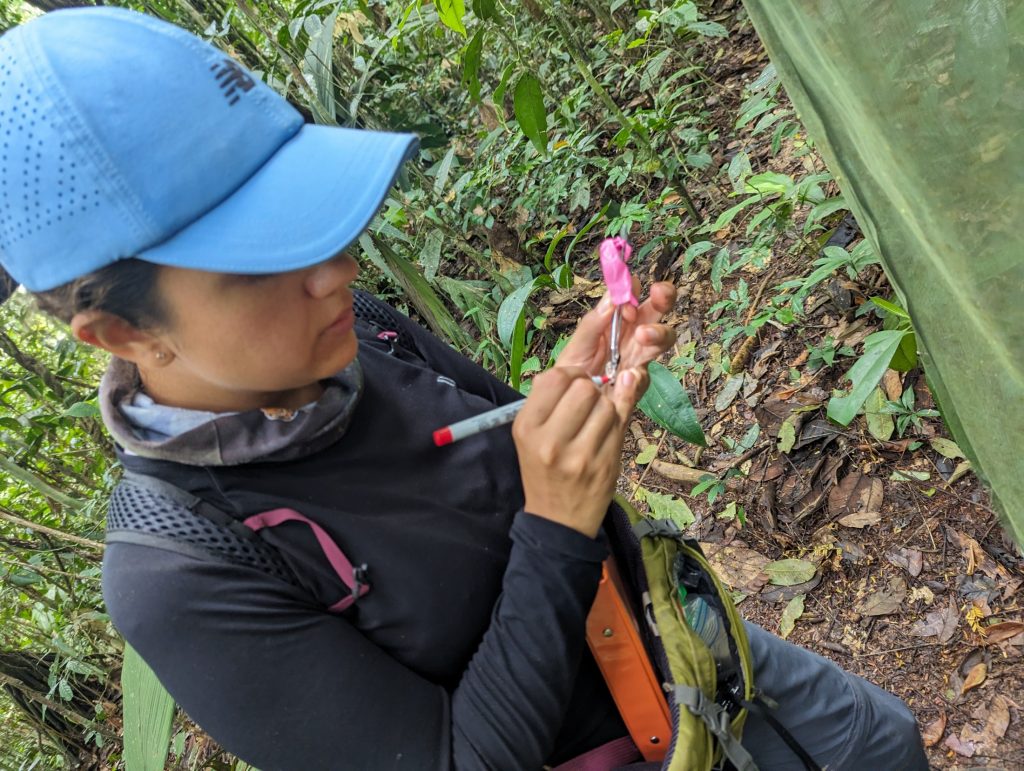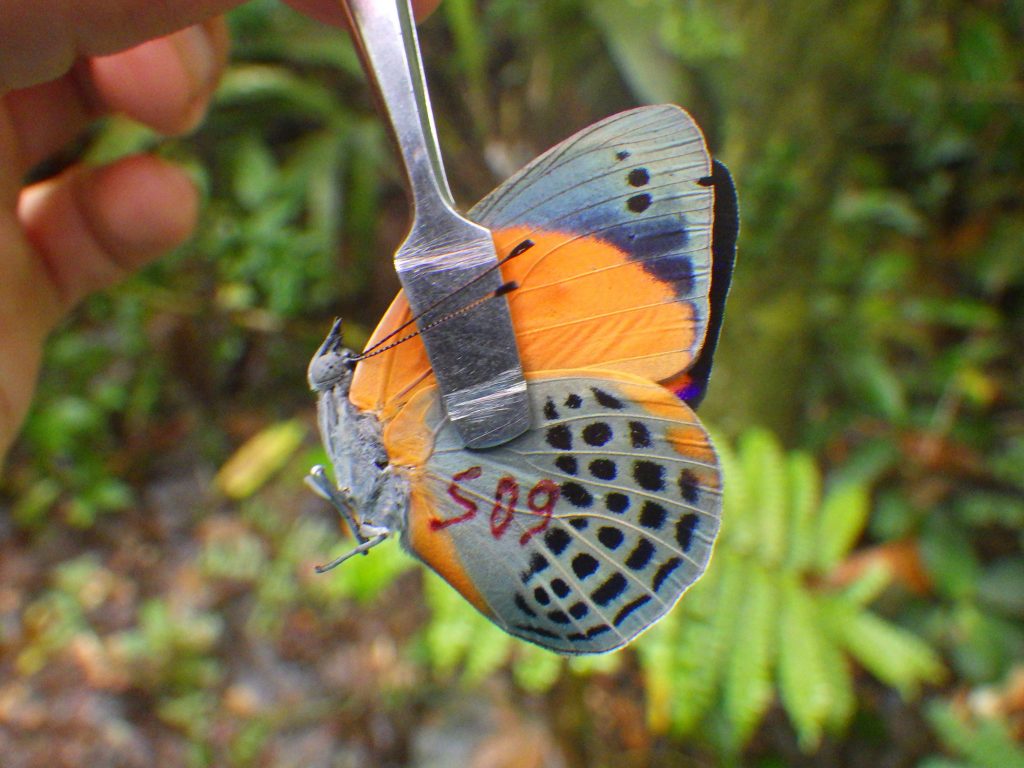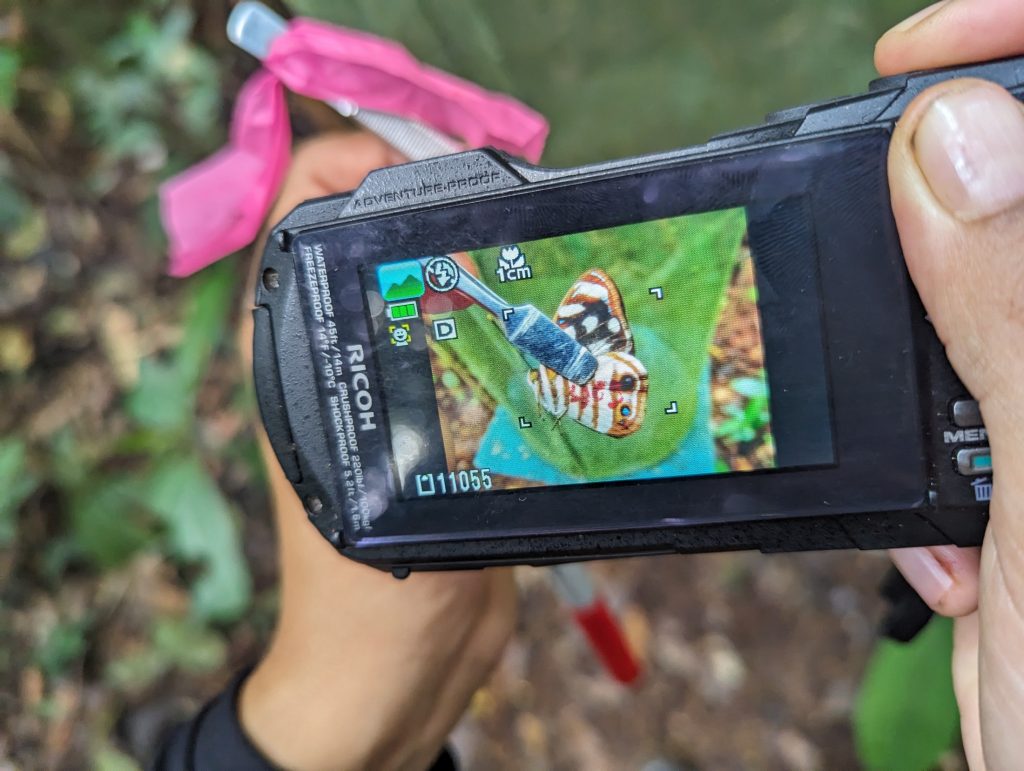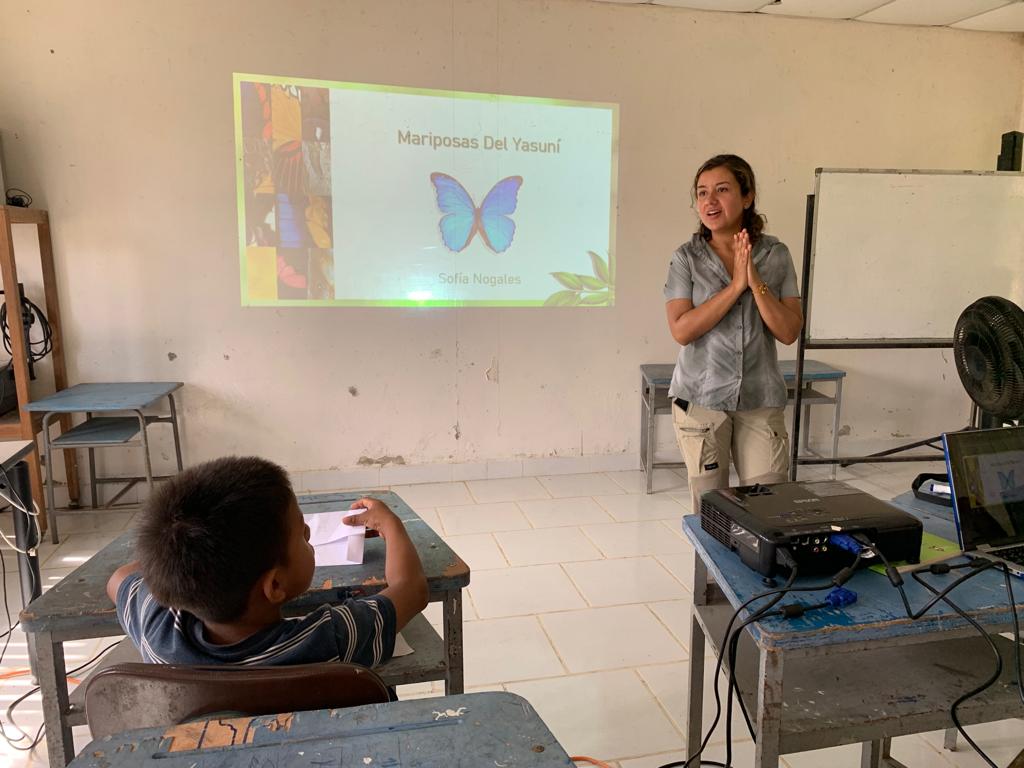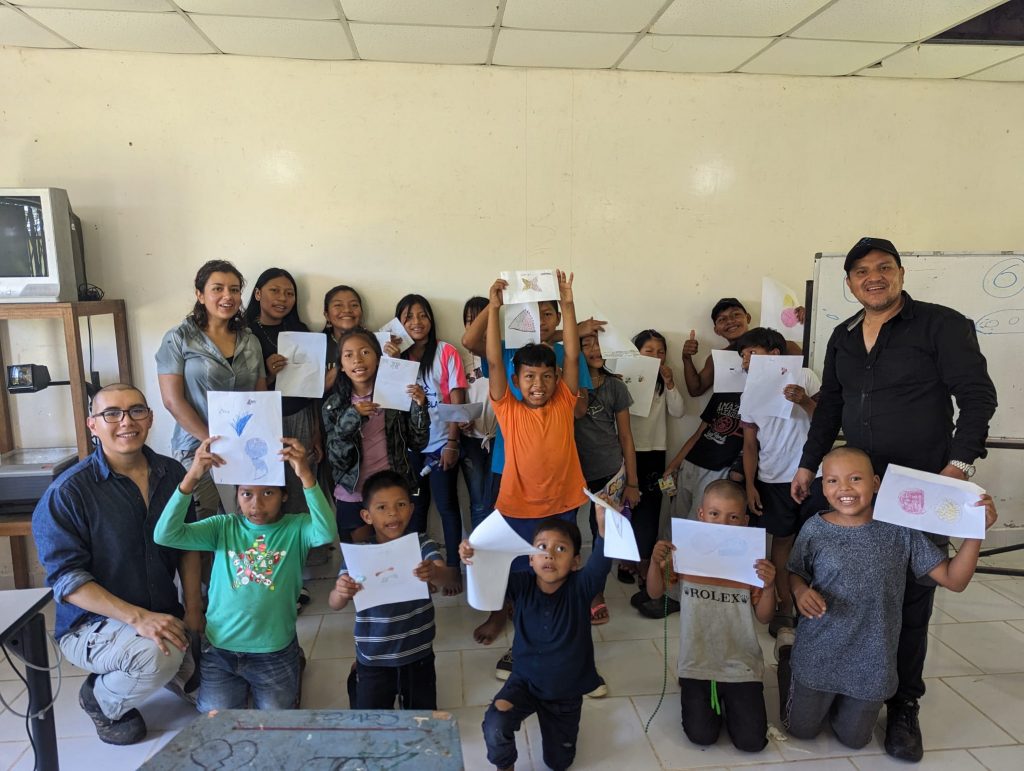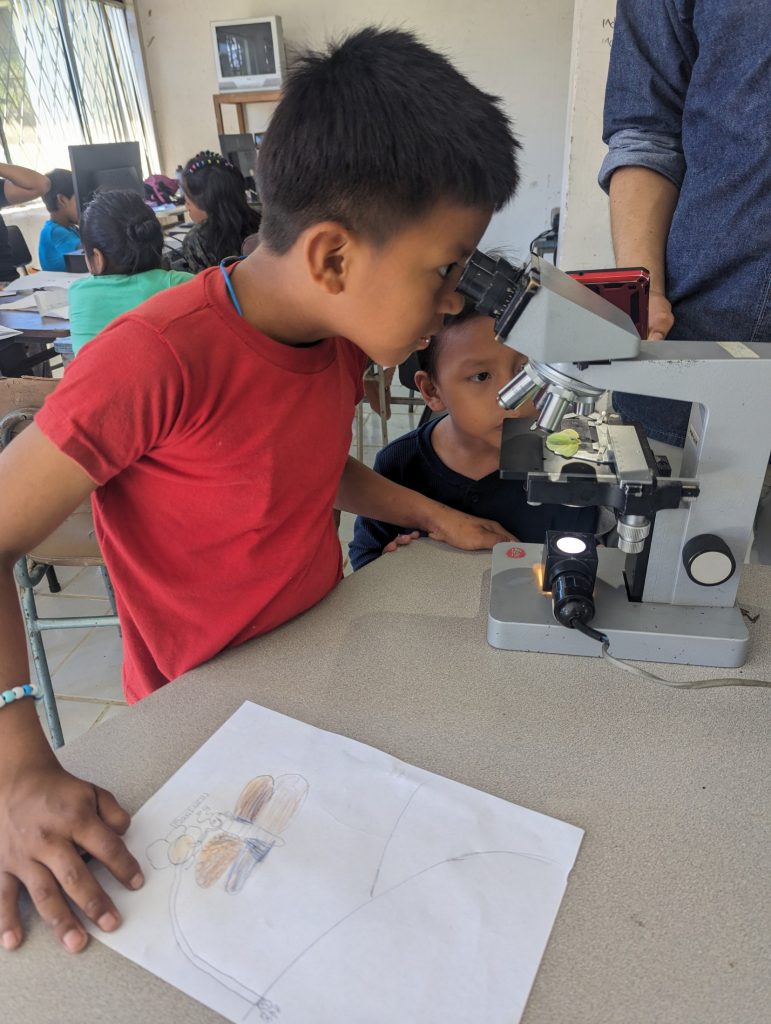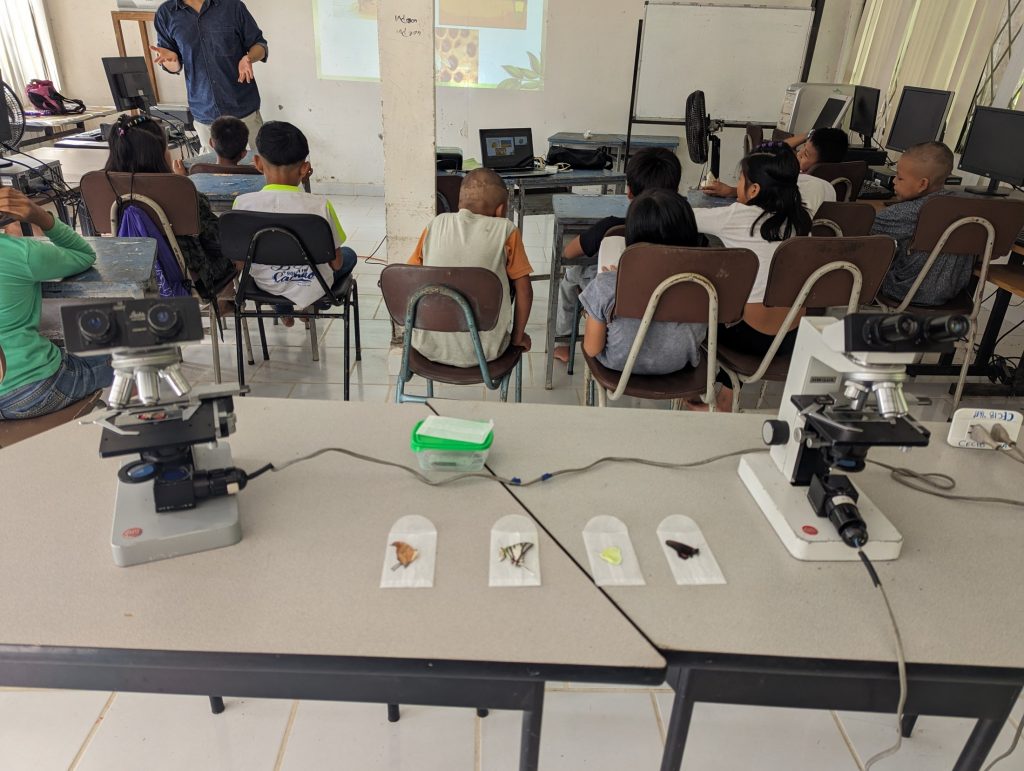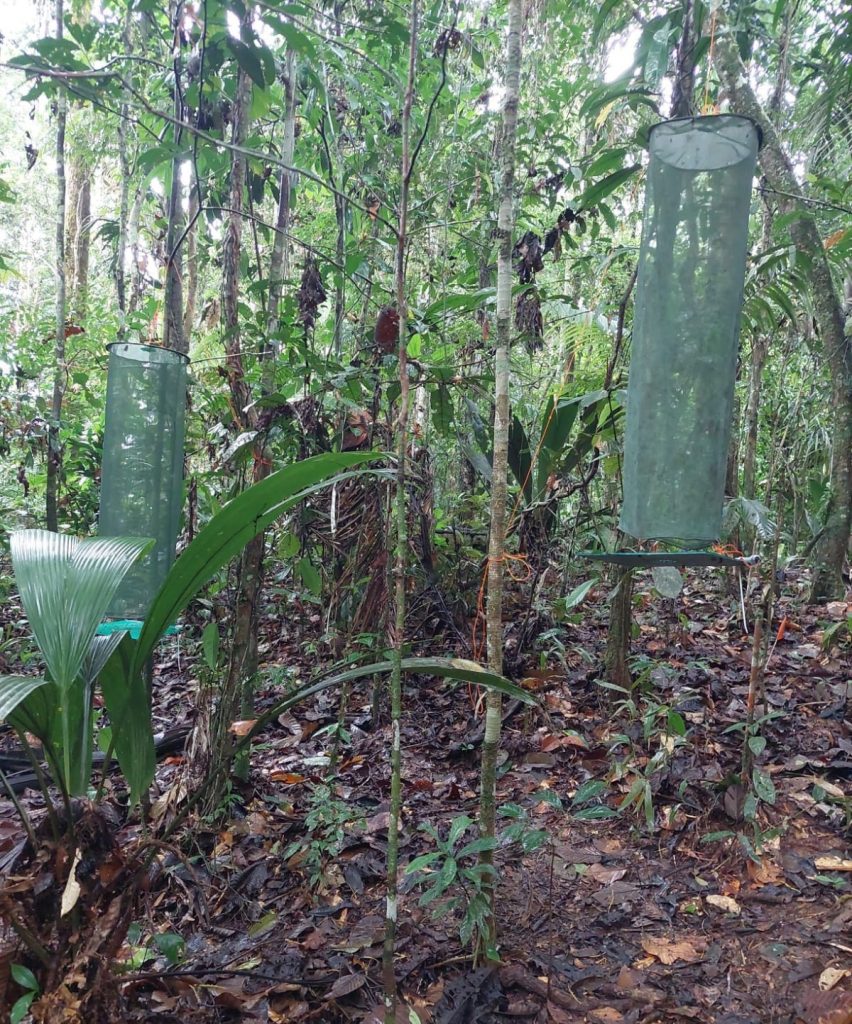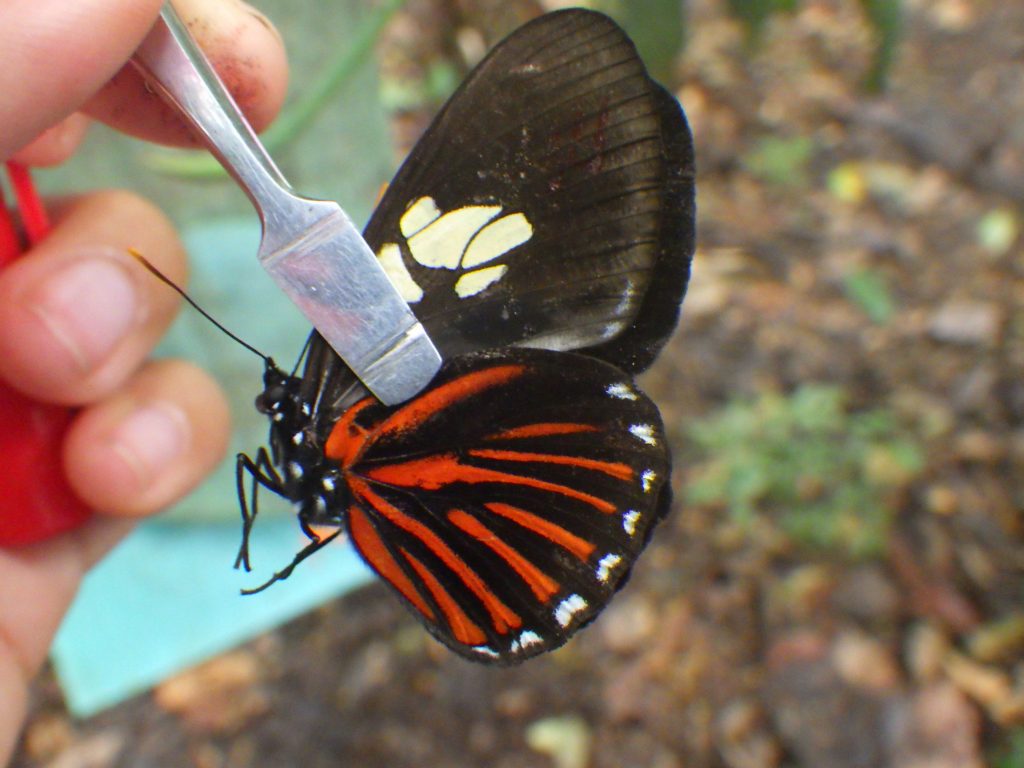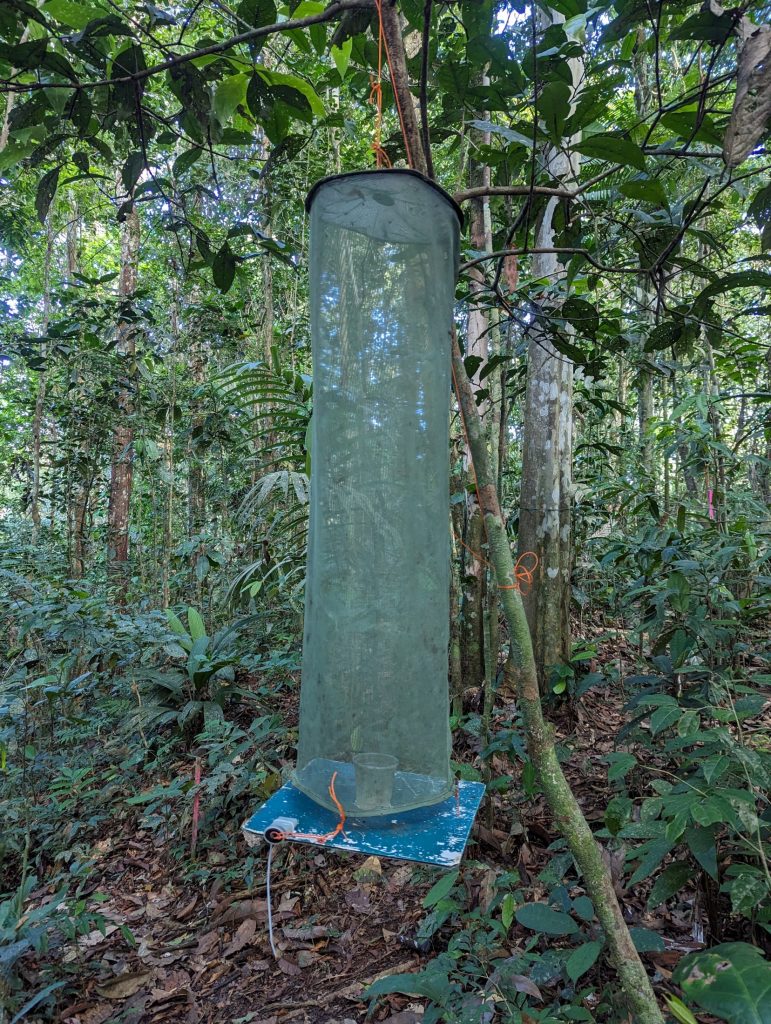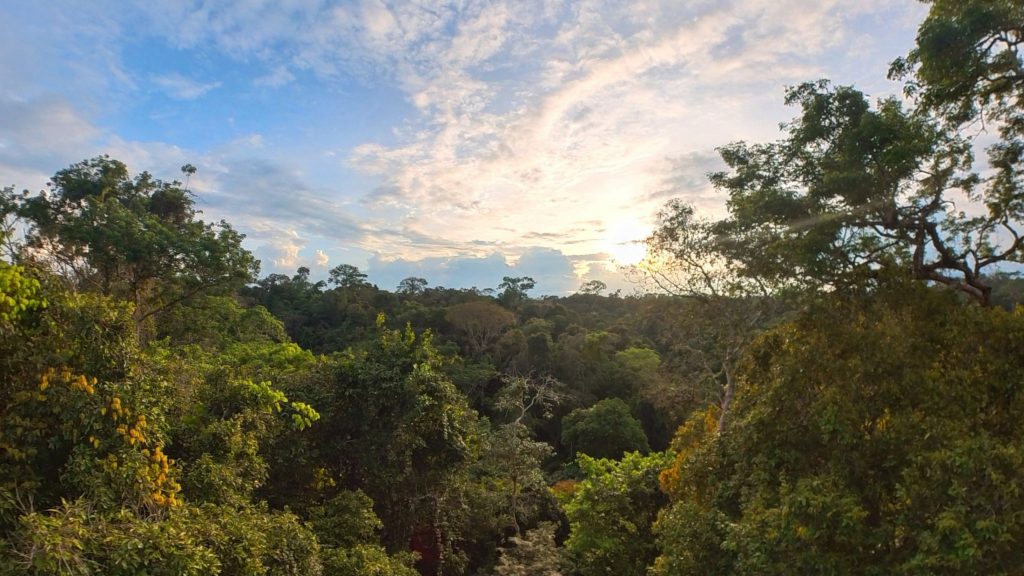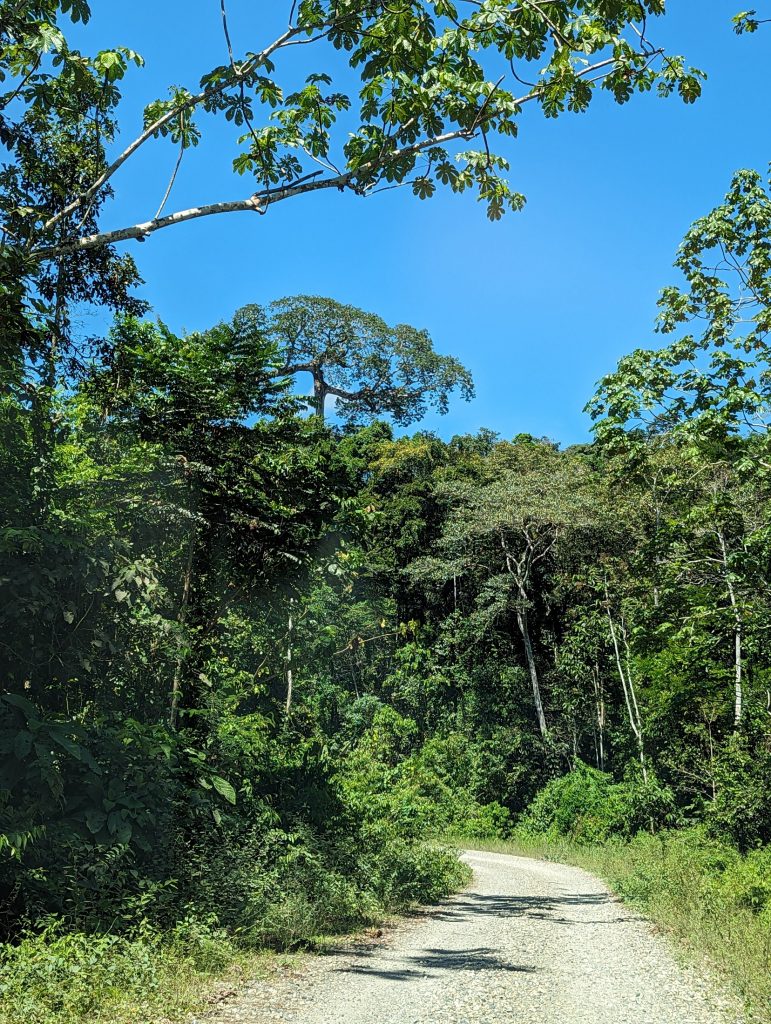McGuire Center Curator Keith Willmott is a keen researcher of Neotropical butterfly systematics and has a long history of field research in Ecuador, where many of his students also work each summer. We introduce two of this year’s students and their projects.
Olivia Maule is a third-year undergraduate student at the University of Florida studying Biology with a specific focus on entomology and sustainability. She currently conducts research at the McGuire Center on the evolutionary dynamics of butterflies on either side of the Ecuadorian Andes. For two weeks in August 2023, she visited both Yasuni National Park and the Mashpi Reserve in Ecuador with two intentions: understanding the distinct microhabitats occupied by butterflies on either side of the Andes, and exploring ways to quickly and simply estimate butterfly flight speed. In the field, Olivia measured variables such as canopy height and cover, tree diameter and vegetation density to enhance her understanding of environmental conditions that different butterfly species prefer. On particularly sunny days, she would collect butterflies and record their flight speed. This process was especially tricky, as many butterflies exhibit erratic flight paths in open spaces, and she decided to try placing butterflies in a transparent holding box and record their behaviors with a camera. Using marked measures of distance and time stamps, Olivia hopes to analyze flight speed using particle analysis software now that she has completed field work. Coupled with timing flight with a stopwatch and estimating distance, she hopes to identify behavioral and morphological differences between species occupying both the east and west Andes. This data will provide greater insight into the biogeographical processes underlying divergence between populations, which can also help inform conservation practices that preserve biodiverse landscapes.
Sofia Nogales, an Ecuadorian Masters student at the McGuire Center, is focused on studying the ecology of Ecuadorian butterfly communities. Her research objectives encompass the understanding butterfly community changes across different temporal scales – including long-term, seasonal, and daily aspects, and how they affect functional diversity in an undisturbed forest of Ecuador, Yasuní National Park. Sofia’s motivation for this research stems from the availability of extensive historical data collected in Yasuní National Park, sourced from her participation in prior projects.
During the summer of 2023, she made a five-week trip to Yasuní National Park to replicate a study conducted two decades ago by María Fernanda Checa, as documented in Checa’s 2019 publication. This study involved the capture of carrion-attracted butterflies at three distinct vertical strata, employing mark-recapture methodology. The primary goals of Sofia´s field expedition included: 1. Comparing the impact of two different carrion baits on species composition. 2. Investigating microhabitat preferences of butterflies with a focus on canopy versus understory and forest edge versus interior, particularly on days characterized by higher temperatures. 3. Assessing forest structure to quantify microhabitat utilization by different species.
Sofia hopes that her data will help to understand how climate and habitat changes may be influencing butterfly communities in one of the world’s most biodiverse protected regions. Finally, during her stay in Yasuní National Park, she also took the opportunity to engage with the indigenous communities residing in the study area, with the aim of disseminating her research and emphasizing the vital role of butterflies in local ecosystems.
